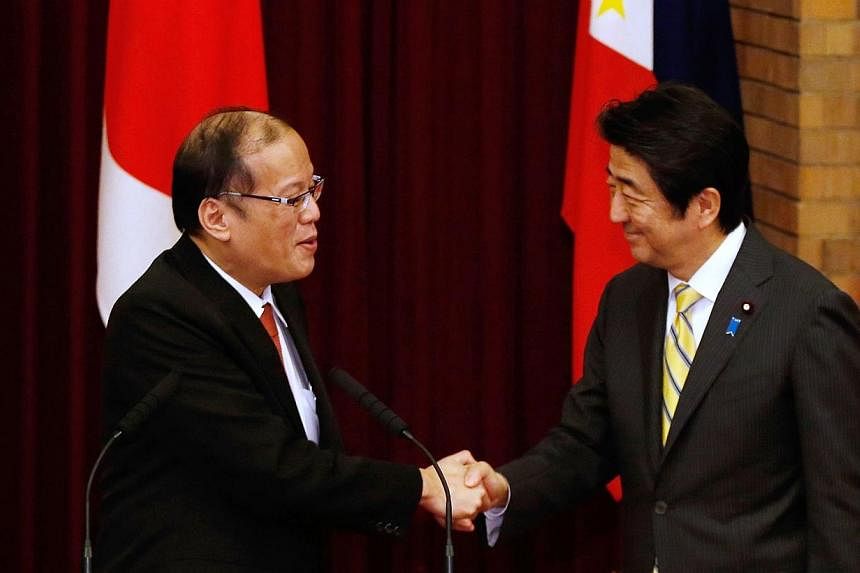TOKYO (AFP) - Japan and the Philippines on Tuesday jointly stressed the need to use "the rule of law" to solve regional disputes, at a time when both countries are embroiled in separate rows with China.
The comments, which came during a one-day trip to Tokyo by Philippine President Benigno Aquino, highlight how regional neighbours are forging alliances to counter an increasingly muscular Beijing as it presses its influence in nearby waters.
Tokyo and Manila, former World War II enemies, have been drawn closer in recent years as they have tackled their parallel disputes with China.
"In the face of the regional situation becoming severe, both nations are closely coordinating," Japanese Prime Minister Shinzo Abe told reporters in a joint news conference after a summit with Mr Aquino.
"I reaffirmed with President Aquino today the significance of... the rule of law," Japan's conservative premier added.
Mr Aquino also said his visit to Japan was focusing on "the challenge of safeguarding our regional security by advancing the rule of law to protect our global and regional common interest."
Mr Abe has repeatedly called for the rule of law to be upheld in the region as tensions simmer over territorial disputes, involving China and some South-east Asian states around the South China Sea as well as between Tokyo and Beijing in the East China Sea. Beijing claims almost all of the South China Sea, even waters approaching the shores of neighbouring countries, and has become more aggressive in enforcing what it says are its historical rights.
When Mr Abe visited Manila in July last year, he pledged Japan's help in strengthening the Philippines' maritime defence capabilities. Part of that was a promise of 10 patrol boats for the Philippines' poorly-equipped coast guard, which is on the frontline of Manila's spat with China.
The Philippines has lodged repeated protests over China's growing military and civilian presence on islands and in waters within what it considers its exclusive economic zone. Meanwhile, relations between Japan and China have plummeted over their competing claims to the Japanese-controlled Senkaku islands in the East China Sea. Later in the day,
Mr Aquino will move to the western Japanese city of Hiroshima to attend a conference on a decades-long Islamic insurgency in the south of the country, as it seeks to implement a peace pact with the Moro Islamic Liberation Front (MILF) signed this year. Japan hosted secret talks between Mr Aquino and MILF leader Murad Ebrahim in 2011, which later became recognised as a key moment in igniting the peace push.
Mr Abe told the conference: "Japan will continue to provide support so that peace can be maintained."

